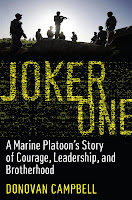With Colonel Roosevelt, Edmund Morris has finally finished his three-part biography of Theodore Roosevelt. Morris’ first book, The Rise of Theodore Roosevelt, traced Roosevelt’s rocket-like ascent from New York assemblyman at age twenty-three to vice-president at forty-two in the McKinley administration (less than a year later, Roosevelt became president when McKinley was felled by an anarchist’s bullet). For Rise, Morris was awarded a Pulitzer.
Theodore Rex examined Roosevelt’s presidential years, with specific attention given to Roosevelt’s attitudes towards race, the U.S. involvement in the separation of Panama from Colombia and the subsequent building of the Canal, and Roosevelt’s work as a negotiator between Russian and Japan in 1905 (for which he won the Nobel peace prize).
Colonel Roosevelt, published in 2010 and nine years after Rex, picks up the narrative of Roosevelt’s life in April 1909. After serving the remainder of McKinley’s term, Roosevelt won the 1904 election in a landslide victory over Democrat Alton B. Parker. In 1908, Roosevelt refused to run for what would essentially be a third term, declaiming that it would be presumptuous to break Washington’s precedent.
After eight years in the choking dust of Washington’s political climate, Roosevelt-at age fifty-departed in the spring of 1909 for an African safari with his son, Kermit, along with a retinue of attendants, guides, and naturalists. Eleven months hunting in Africa proved that Roosevelt had not lost his skill as a hunter after eight years as a politician: T.R. shot and killed 9 lions, 8 elephants, 6 buffalo, 13 rhino, 7 hippos, 3 pythons, 6 monkeys, and over 150 antelope. Total animals shot: 296. (Morris, 26).
In March 1910, Roosevelt concluded his safari by chugging along the Nile River to Khartoum, where he re-united with Edith, his long-suffering wife. After stopping in Cairo long enough to gauge the precarious rule the British maintained over Egypt, T.R. and Co. steamed to Naples to embark on a grand tour of the principal European cities. Roosevelt had acquired an adequate use of French and German during his summers spent in Europe as a youth, and his status as recently retired head of state meant Roosevelt was greeted as a celebrity by most of the people of Europe. In France, Roosevelt railed against academic effeminates-it was at the Sorbonne that T.R. delivered his famous “Man in the Arena” speech to warn against ivory-towered intellectualism-and warned that declining birth rates could jeopardize Gallic culture and France’s ability to defend itself from potential challengers (i.e. Germany). In Germany, T.R. attended a review of the German army with Kaiser Wilhelm II, and in England, T.R. acted as the official representative of the American government at the funeral of Edward VII.
Morris goes on to provide a rollicking story of Roosevelt’s return to America and his re-entry into politics in 1912 as a progressive challenger in the GOP primary to an incumbent Republican president, William H. Taft. Roosevelt felt Taft, who had served as Secretary of War in Roosevelt’s administration, had betrayed his (Roosevelt’s) reform policies and pushed the country back towards a conservatism that favored business trusts, opposed women’s suffrage, and distrusted popular elections. Through a series of political maneuvers, the GOP was able to thwart T.R.’s campaign at the party convention, and the offended Roosevelt led an exodus of progressive followers out of the GOP to form the Progressive Party. If only Roosevelt or Taft had run and not both, Woodrow Wilson might not have been elected president in 1912. But with four candidates in the race (Eugene Debs ran on the Socialist Party ticket), Wilson swept to victory with a massive edge in the Electoral College (the popular vote was closer: Wilson with 41%, Roosevelt with 27%, Taft with 23%, and Debs with 6%).
It would be difficult today to place T.R. in our current political categories. Roosevelt was more than just a strong interventionist: he spoke of war in words that were by turn romantic in their glorification of death on the battlefield, and Darwinian in arguing that war helped a nation purge itself of unhealthy tendencies to sedation and softness. T.R.’s bellicosity would be anathema to the current Democratic Party, and yet his Square Deal and advocacy for the re-call of individual judicial decisions (!) at the ballot box would place him probably squarely between the two parties today.
From 1915-1917, Roosevelt strongly pressed the Wilson administration to prepare for war. When the U.S. declared war on Germany on April 6, 1917, Roosevelt immediately began lobbying Wilson’s secretary of war to give Roosevelt a commission to raise a volunteer division for deployment to Europe. The administration tactfully refused the fifty-nine year old Roosevelt’s request. All four of Roosevelt’s sons would serve, three would be injured, and the youngest, Quentin, shot down and killed by a German pilot. The death of his youngest son in July 1918 was a terrible blow to Roosevelt, who died just six months later.
If you are interested in Roosevelt’s character, and especially his astounding ability to read, write, and work at a breakneck pace for weeks on end, I suggest reading The Rise of Theodore Roosevelt. It is the best book of Morris’ trilogy, although all three are certainly worth reading.

